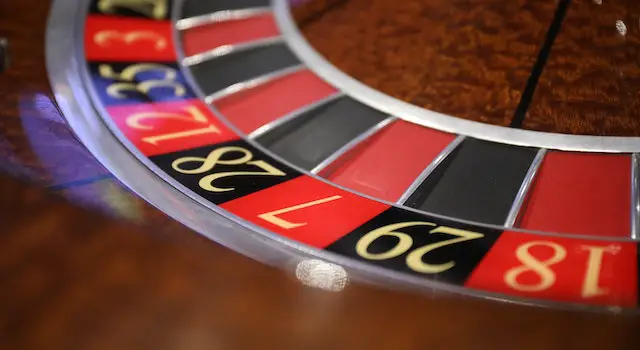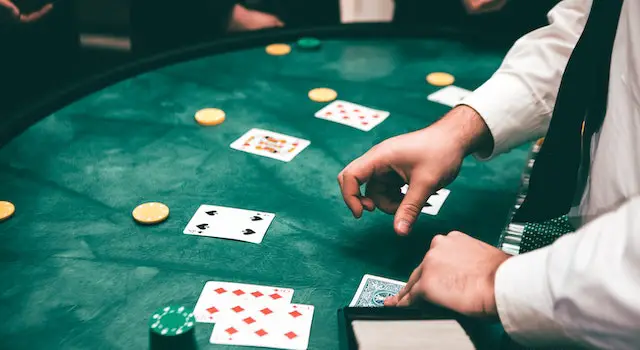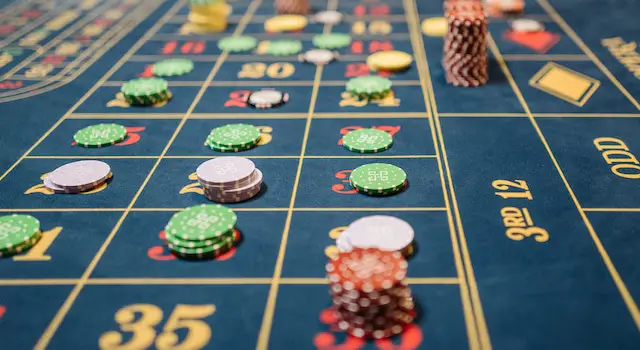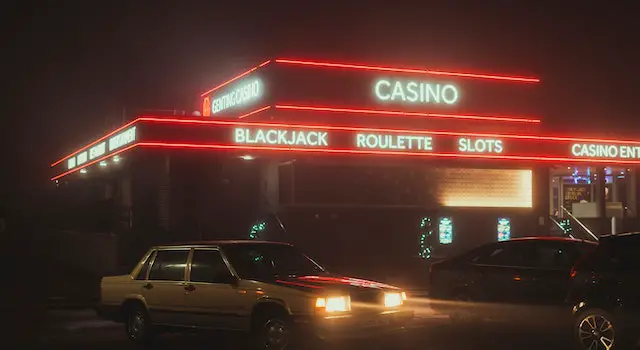Can You Record In A Casino?
Recording online slots is generally permitted, but occasionally, when you are in a brick-and-mortar gambling establishment, it could get in the way and not be permitted. While some casinos will permit you to record films or yourself on their premises, other casinos may not, and for excellent reasons.
Understanding Casino Regulations
Casinos are lively and thrilling entertainment destinations that draw thousands of guests annually. Yet, underneath the glitter and pomp, stringent rules regulate the operations of these establishments to ensure the security and fairness of accountable gambling. We’ll explore the realm of casino regulations and their significance, as well as the most important areas of regulation: licensing, responsible gambling initiatives, measures to prevent money laundering, and the function of the regulatory authorities. If you can gain a greater understanding of the regulations for casinos, it will allow you to navigate the gambling landscape with confidence and greater understanding.
Importance of Casino Regulations
Casino regulations are vital for maintaining the honesty and integrity of the gaming industry. They protect the rights of players, ensure responsible gambling practices, stop illegal activities, and ensure that the games provided are impartial and fair. These rules create a safe and secure environment for both casino operators.
By enforcing stringent regulations, authorities seek to reduce the possibility of money laundering, fraud, and other illegal actions in the casino industry. Furthermore, the regulations provide an established procedure for resolving disputes between operators and players, ensuring that complaints are dealt with promptly and fairly. In the end, regulations for casinos have a crucial role to play in protecting the reputation and credibility that the business enjoys.
Key Areas of Casino Regulation
Regulations for casinos cover a broad array of subjects to protect the security of operations. The main elements that are controlled include:
Licensing: Casinos need permits from regulatory bodies to legally operate. The licenses are required to ensure that the casino complies with specific standards regarding financial stability, integrity, and adherence to ethical gambling policies. The requirements for licensing vary depending on the jurisdiction but typically comprise checks on the background, financial audits, and the strictest operational guidelines.
Game Fairness: The regulations ensure that casino games are fair and objective. Authorities may require casinos to utilize approved random number generators (RNGs) to determine the outcomes of games while ensuring that no cheating or manipulation occurs. Regular audits and tests of gaming equipment are carried out to ensure the integrity of the game.
Security and surveillance: Casinos must adopt robust security measures to guard the players from criminal activity and prevent it. This includes using monitoring systems, security staff, and strict control of access protocols. Casinos also must adhere to rules on the protection of data to secure the customer’s personal information.
Responsible gambling: Regulations encourage responsible gambling practices and protect vulnerable players. Casinos need to use strategies like self-exclusion programs and age verification processes to limit the number of bets. Furthermore, casinos are usually mandated to disclose information on problems with gambling helplines and assistance.
The integrity of financial transactions: Casino regulations contain measures to stop money laundering and ensure financial transparency. Casinos must have anti-money laundering (AML) procedures, including due diligence on customers, monitoring transactions, and reporting suspicious activity to authorities in charge of regulation. Audits of financial records and requirements for record-keeping are also mandatory to maintain financial integrity.
Licensing Requirements
The need for a license is an essential requirement to allow casinos to operate legally. License requirements vary by region, and each regulatory body has its own criteria. To be granted a license, casinos are required to go through an extensive application process that could comprise:
Background checks: Casino operators and key employees are subject to background checks to confirm their credibility and suitability to run a gambling establishment. This includes checking for criminal history, financial stability, and previous involvement in the business.
Financial Audits: Casinos must disclose financial data to prove their capacity to meet their financial obligations and to maintain stability. Financial audits could include looking at the financial statements of casinos, capital reserves, and the source of funding for operations.
The Legal Perspective

In the age of digital technology, recording videos and taking photos have become integral elements of life. But legal considerations and limitations must be considered when recording is required in casinos. We will look at the legal implications of recording in a casino by studying the privacy laws, intellectual property rights security requirements, consent requirements, casino policies, and the role of regulators. If you know these legal issues, you can navigate the legalities of recording in casinos responsibly and within the legal framework.
Privacy Laws and Expectations
Privacy laws play an important part in the regulation of recording individuals who are in a casino. Casinos, as with any other public space, are governed by privacy laws that safeguard the rights and expectations of people regarding their privacy. It is crucial to recognize that players in a casino are entitled to a reasonable expectation of privacy, particularly in public bathrooms, hotel rooms, restrooms, or private gaming rooms.
The recording or photography of people without their permission in places where privacy is expected could infringe on their rights. It is recommended to be respectful of the privacy of others and avoid taking photographs or recording individuals without their consent in these instances.
Intellectual Property Rights
The casino’s intellectual property rights, including trademarks and copyrights, secure the work of artists and brands that casinos use. Copyrighted content that is recorded and distributed without valid authorization could have legal consequences. This could include capturing and disseminating videos or images of shows, games, or other copyrighted content on the premises of a casino.
To prevent infringing upon intellectual property rights, it is crucial to obtain the proper permissions from appropriate authorities before making recordings or sharing copyrighted material. This includes obtaining written approval from the casino’s management or copyright holders to record and share a particular performance or display.
Consent Requirements
Obtaining consent from people before taking photos or recording their personal details is an essential element in ethical recording procedures. While public spaces in the casino might have less expectation of privacy, it’s recommended to obtain consent before you capture identifiable individuals on your recordings.
If you want to capture or photograph certain individuals, ask their permission beforehand. Explain to them the reason for the recording and the purpose of your footage. Ensure they understand and consent to being recorded before taking any action. Remember that they are entitled to withdraw their consent, and you must respect their decision.
Security Concerns and Surveillance
Casinos are extremely secure because of the huge amounts of money and precious assets. They typically have vast surveillance systems to keep track of the activities for security reasons. These surveillance systems are managed by the casino’s security team, which is subject to rigorous guidelines.
Recording in areas with surveillance cameras could cause security issues and disrupt the security of the casino’s operations. It is crucial to remain aware of the security procedures and rules. Beware of interfering with security personnel or blocking surveillance cameras’ recording since this could be considered a security breach and may result in legal penalties.
Alternatives To Personal Recording
While recording personal information at a casino could be restricted by law and privacy issues, other ways exist to preserve and record your casino experience. These options allow you to preserve memories without violating the privacy rights of individuals, rights to intellectual property, or casino rules. We’ll explore other options to record your casino experiences, such as professional photography services and authorized media coverage. Casino-provided photo opportunities, souvenirs, written reports, and engagement on social media Considering these options, you can make lasting memories while adhering to ethical and legal guidelines.
Professional photography services
Numerous casinos provide professional photography services at their facilities. They are usually run by licensed photographers who specialize in recording the casino’s excitement and atmosphere. Professional photographers are familiar with privacy laws and intellectual property rights and can ensure their services meet legal standards.
Professional photography lets you get high-quality photos captured in certain areas inside the casino. They usually offer the option of group or individual photos that allow you to record memorable moments with your friends or family members. The photographers will also provide advice on compositions and poses to improve the appearance of your photos.
Authorized media coverage
If you’re looking to capture the excitement of a casino on a larger scale, consider getting authorized media coverage. Newspapers, magazines, or online publications might have agreements with casinos to cover specific events or conduct photography shoots. The media’s authorization ensures that your documents adhere to ethical and legal guidelines.
Contact the casino’s media department or the public relations team to discuss opportunities for media coverage. They can provide information about upcoming press releases or events you can participate in. Remember that permission for media coverage might require conformity to certain guidelines, for example, obtaining permission from those featured on the video and respecting intellectual property rights.
Casino-Provided Photo Opportunities
Certain casinos have specific areas or activities where guests can snap photos during their casino experience. These spaces are typically visually appealing and are designed to create the perfect backdrop for your pictures. These include theme displays, photo booths, or iconic landmarks inside the casino.
Visit the casino’s guest service or information desk to inquire about any photography opportunities available. They will direct you to certain areas that allow photography and could even have backdrops or props available. Using these photo opportunities will ensure you can capture unforgettable moments without jeopardizing security or breaking casino policy.
Casino Souvenirs
Casinos typically offer a selection of gifts for guests to mark their trip. These can be tangible reminders of your experience at the casino. The options range from keychains to magnets, t-shirts, hats, or custom casino chips.
You can purchase casino souvenirs to keep memories intact without needing personal recordings. These souvenirs typically include the casino’s logo or other iconic elements, acting as an ode to your time in the casino. Using or displaying these objects can bring back memories and start conversations about your gambling experiences.
The Future Of Casino Recording

The technological world is rapidly changing, and as technology advances, it will change the future of recording casino events. From virtual realities to live streaming services, the possibilities of recording and sharing moments at the casino are growing. We will look at the possible future of casino recording by looking at emerging technologies, applications for augmented reality, live streaming innovations, drone photography using wearable devices, and the influence that social media has. In imagining the future of recording at casinos, it is possible to anticipate how technology will impact our gaming experiences.
Emerging Technologies
The emergence of new technologies, such as the virtual world (VR) and AR, or augmented reality (AR), has great opportunities for the next generation of recording at casinos. VR immerses players in a virtual casino setting, offering an immersive casino experience that is recorded and shared. With the development of VR technology, players may be able to record their casino experiences in virtual reality and create a personal recording of the game and interactions.
On the other hand, AR applications permit the overlay of digital elements on a real-world casino. The technology will allow players to record moments using virtual casino characters or enhance their images and videos by incorporating digital effects. As AR continues to develop, it is poised to change how we record and publish our gaming experiences.
Advancements in Live Streaming
Live streaming has already revolutionized the way we share content, and its influence on recording at casinos will likely increase in the coming years. Thanks to the growth of streaming platforms like Twitch or YouTube Live, players can stream their games in real-time, allowing viewers across the world to see the action unfold.
Future developments with live streaming technology could offer additional engaging and immersive experiences. Viewers could interact in conversation with the host, inquire about questions, and receive real-time feedback. The level of interaction can increase the social element of casino recording, which allows players to discuss their experiences and connect with others in real-time.
Wearable Devices
Wearable devices, such as smartwatches or smart glasses, provide a hands-free and easy method of recording moments without the need for hand-held devices. The devices will be more sophisticated shortly, allowing gamers to record their casino experience seamlessly. Imagine recording your game or snapping photos by speaking commands or making precise gestures.
Wearable devices can also be integrated with AR technology, providing users with an improved personal recording experience. For instance, smart glasses could overlay information from digital sources like statistics, information, or even live-streamed gameplay data onto the wearer’s field of vision, resulting in a distinct and immersive recording experience.
Drone Photography
Drone technology has revolutionized videography and photography across various industries and holds enormous potential for casino recording. Drones equipped with top-quality cameras can capture breathtaking photographs of casinos from above that showcase their grandeur and architectural splendor.
Shortly, drone photography will be more user-friendly and accessible, permitting people to capture stunning views of the casino. Imagine capturing stunning images of the exterior area’s outdoor events and taking bird’s-eye shots of the gaming floors.
FAQ’s
Can you film at a casino?
In the past, photography was prohibited in casinos worldwide for security and privacy reasons. Today, many casinos allow some photos, but only if they’re not of playing tables that are active, the cashier’s cage, or unassuming employees. You might want to speak with an employee of the casino to be certain.
Why don’t casinos allow you to record?
OK, so why don’t casinos let players record? A lot of these rules predate YouTube or mobile phones. The reasons they are discussed are varied: security or to prevent cheating so that you don’t get the other users on camera; however, for the most part, the rules seem to be an enduring remnant of a previous time.
Why can’t photography be allowed in casinos?
Casinos often mention security as a reason why photography is not allowed. However, the main reason they aren’t keen on photography is the need for privacy. Casinos recognize that customers are frequently at casinos where they shouldn’t be and often are with those they shouldn’t be (like mistresses or prostitutes).
Can a casino blacklist you?
For the gaming control board, those identified are typically believed to have or are suspected of having links to criminal syndicates. Casinos are required by law to ban all of these people from entering the premises and are penalized for failing to do this.
















